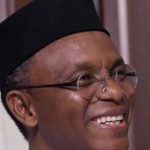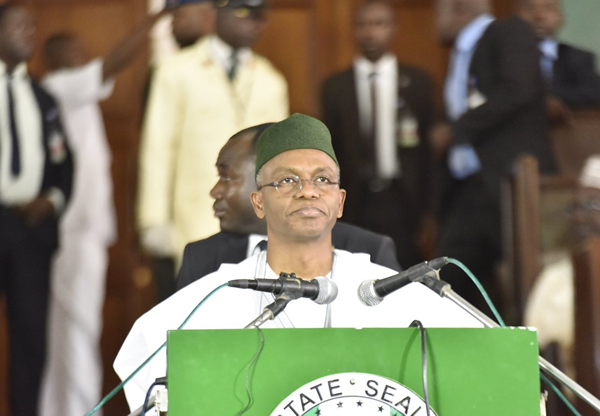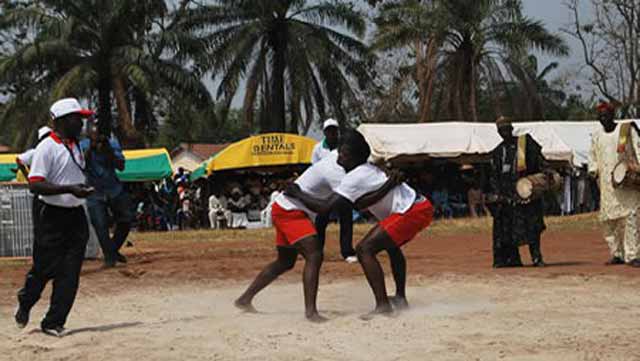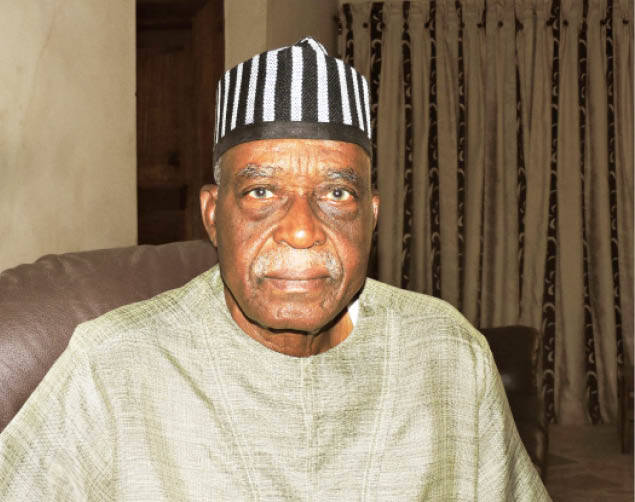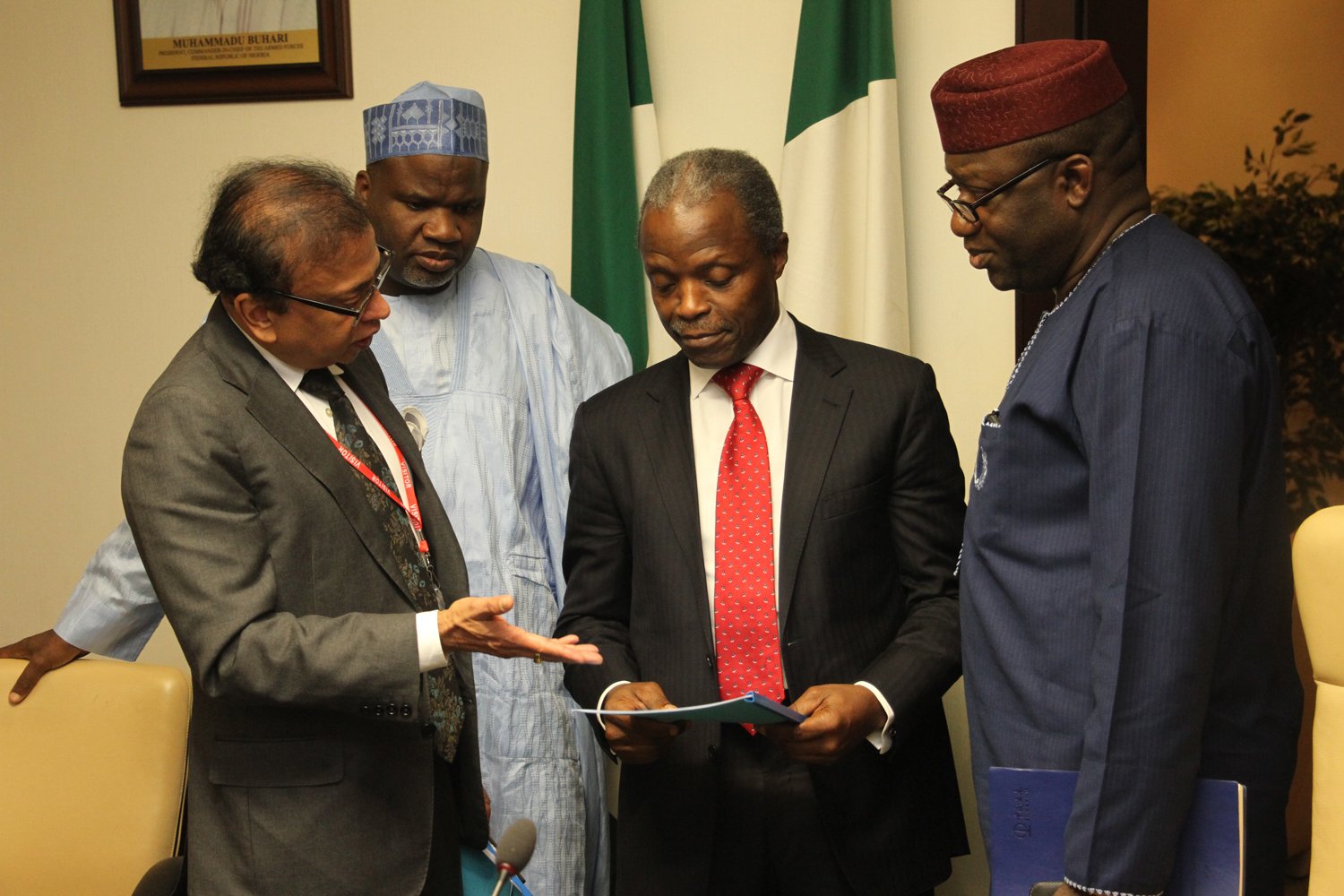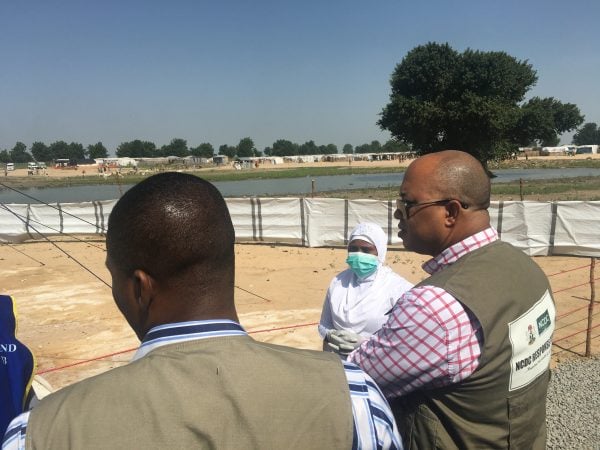Dear Residents of Kaduna State, It is my privilege to address you once again as your governor. The monthly live radio chats I host regularly provide us a platform to discharge our duty of political responsiveness by taking questions, engaging with you and clearly explaining our policies and general direction. For instance, I devoted considerable time during the media chat for October 2017, to explaining why we are undertaking fundamental reforms in Education, and to providing an update on the state of those reforms. I also explained that I had signed Executive Orders for the local government councils to comply with the establishments prescribed for them.
In view of the importance of Education and Public Service Reforms, and the widespread interest our decisions have generated, it is my firm belief that I should address the entire state on the issue. This is to ensure that everyone that lives in Kaduna State understands what we have done, and why they have been done.
Education is Liberation
When we began campaigning in 2014 for the responsibility to lead this state, we made it clear that Education is one of our priority areas. In the Restoration Programme, the APC manifesto for Kaduna State, we stated that “our educational policies and programmes are aimed at eradicating illiteracy in Kaduna State, ensuring every child gets at least nine years of free basic education, improving infrastructure and tools, while attracting the best people in character and learning to the teaching profession”.
Advertisement
We made Education the number one item in our manifesto because Education is a fundamental component of human capital development. At its best, Education is an aspirational asset, a tool that enables every human being to widen their horizon, develop skills and lift themselves up. Education is a leveller. It gives the children of the poor a chance to rise above the condition of their birth. And a nation of well-educated people offers immense opportunities for social mobility, enabling the poor to move out of poverty by the sheer force of talent and hard work.
This is is not a theoretical matter. Many Nigerians in their late fifties and above owe a lot of their lifetime achievements to public education. For instance, I had my primary education at Local Education Authority (LEA) School, Kawo. The foundation my teachers gave me in primary school was reinforced by very wonderful teachers at Barewa College, Zaria. The knowledge and hard work of these teachers nurtured the confidence and study habits that enabled me to earn First Class Honours at the Ahmadu Bello University, another public school.
I had not gone to any private school before I established my professional practice in Quantity Surveying in which Allah enabled me and my partners to enjoy considerable success. I have subsequently acquired further degrees from foreign, private universities, but I am a public school product and a very proud one at that. The other leaders of this government also went through the same public-school experience. Our Deputy Governor Barnabas Bala went to LEA Maiduguri Road, Federal Government College, Warri, University of Lagos and Ahmadu Bello University, where he graduated with distinction in Architecture. Balarabe Abbas Lawal, the Secretary to the State Government and Bashir Saidu, our Chief of Staff, are also products of the public school system. The irreplaceable Professor Jonathan Andrew Nok started life in LEA Ungwan Rimi, and went on to become a scientist of international acclaim. As our Commissioner of Education, Prof. Nok capably drove our programme to give the younger generations the opportunities we had as children.
Advertisement
Our generation has been so blest by free, quality public education. While in school, we rubbed shoulders with the children of the rich and the offspring of the top government and military officers. And we went into the world with the skills to compete with anyone. In fact, people of a certain age will remember that at a point, the standards of our public universities were so high that those who could not get in had to go abroad!
Having been so blessed by decent public education, we cannot be derelict in the moral obligation to give unto others the wonderful things that we have been given.
It is this experience of enjoying the fruits of purposeful government action in our formative years that has moulded our political views and made us ardent champions of the equality of opportunity. I started life in rural Daudawa as the son of a pensioner. Without public education, I would not have gone to school. I believe that the children of the poor are entitled to the same opportunities that I was given.
Therefore, we have a governance mission to provide ordinary people and their offspring a sustainable ladder for social mobility. Our purpose in government is to promote equality of opportunity, to give every child the best prospects through decent education. It is to secure for our young people employment opportunities in a vibrant economy, regulated by a competent public service. It is about giving everyone a fair chance in the race of life! It about being for the people and seeking to empower them, not creating and exploiting dependency.
Advertisement
Public schools lack facilities and good teachers
Yet, what do we find today in our public schools? During the general election campaign in 2014 and early 2015, my colleagues and I drew attention to the poor state of our schools. We said many schools did not have roofs, doors, windows, water and toilets, and we promised to fix it. As soon as we took office, we also sadly learnt that at least 50% of school pupils sat on floors due to the absence of desks and chairs.
As if this dismal state of school infrastructure was not bad enough, we were soon confronted by the pernicious phenomenon of unqualified teachers. We found that unqualified teachers entered the system because the recruitment of teachers was politicised. The local government council chairmen and other senior politicians and bureaucrats saw teaching as a dumping ground for their thugs, supporters and other unsuitable persons.
This attitude of indifference to public education resulted in the recruitment of teachers at local government level without adherence to standards. In many instances, no examinations or interviews were conducted to assess the quality of recruits. Political patronage, nepotism and corruption became the yardstick, thus giving unqualified persons a way in. Teaching jobs were given as patronage to those connected to politicians and bureaucrats.
Advertisement
As we prepared to take office in May 2015, we received briefings from the Education Sector Support Programme in Nigeria (ESSPIN), a DFID programme. A summary of pupil and teacher competence levels provided by ESSPIN indicated the following:
- 83% of the teachers scored less than 25% in Maths and literacy exams
- Pry 2 Pupils had an average score of 14% in English and 27% in Maths
- Pry 4 pupils had an average score of 13% in English and 17% in Numeracy
This was a premonition of the tragic legacy we were inheriting in public education.
Advertisement
What the Government has done
It is fair to ask what we as government are doing to tackle this. Previous governments have sacked teachers caught with fake qualifications. The government of Sir Patrick Yakowa dismissed 4000 of such teachers. Furthermore, the Yakowa government responded to reports that 50% of primary school teachers were not qualified by giving such teachers a five-year deadline to acquire the appropriate qualifications. The Kaduna State Executive Council, at its meeting of 8th August 2012, after considering the report of the committee on the verification of teachers’ qualifications, gave a five-year window for under-qualified teachers to acquire the Nigeria Certificate in Education (NCE). This five-year grace period has now expired.
Advertisement
Government responded to the implications of the ESSPIN report by getting the National Open University of Nigeria to conduct a survey of teacher competence. We took further steps to address gaps by arranging training and retraining for the teachers, as follows during the 2016/2017 session:
- 11,315 classroom teachers were trained in Literacy and Numeracy through SUBEB.
- Another 3,733 teachers were trained in Reading Skills through the Global Partnership for Education.
- UBEC trained 5,945 teachers in Pedagogy, Lesson Plans and use of Teachers’ Guides
On 3rd June 2017, the Kaduna State Government conducted a competency test for primary school teachers. This test assessed the literacy and numeracy levels of the teachers through a Primary Four test. The government considered that giving teachers a 75% threshold for a Primary Four test was an extremely generous decision!
Advertisement
Alas, only 11, 591 teachers (33.9%) scored at least 75% in the test. Others fell within the following categories:
- 70 and 74%: 5,766 (16.9%)
- 60-69%: 8,759 (26.1%)
- 0-59%: 8,047 (23.58%)
The test was organised and supervised by a committee which included the state chairman and secretary of the Nigerian Union of Teachers (NUT) and representatives of the Teachers Registration Council of Nigeria (TRCN).
No impact from Training
The results of the competency test profoundly disappointed us. It showed that much of the monies spent on training teachers since 2011 had been wasted. The Kaduna State Government has spent more than N1bn on teacher training since the 2011/2012 session. The current government has spent more than N625m on training since 2015. Thousands of teachers were trained in Literacy, Numeracy, Reading Skills and in other subjects of the teaching profession. The competency test results clearly showed that the training programmes had recorded, at best, only limited impact.
With all the expense and time already devoted to training, the government came to the conclusion that it is not further training that teachers who cannot score 75% in a Primary Four exam require. Teacher training is about improving the capacity of a teacher to impart knowledge. What the competency test showed is that many of the teachers do not have the basic knowledge, and are as such incapable of imparting what they do not have. The honest truth is that many of these teachers should themselves be adult education students, being taught basic literacy and numeracy!
In these circumstances, the government took the difficult, but necessary decision, to disengage all the teachers who did not meet the 75% threshold. This has been done in accordance with the terms of their employment, and their entitlements will be payed, as appropriate. In place of the 22,000 teachers disengaged, 25,000 qualified teachers are to be recruited. This week, SUBEB conducted tests for the over 43,000 applicants that have indicated interest in the teaching positions. The ongoing recruitment process will sieve these applicants to ensure that only bonafide teachers are recruited.
Towards a decent public education system
We are gratified that across the country, there is a critical mass of patriotic, fair-minded citizens that supports the right of everyone, including the children of the poor, to decent education. President Muhammadu Buhari has expressed strong support for our reform push, and we wish to thank him profoundly for this. We appreciate the weight of public opinion, expressed in the media through editorial comments, in favour of drastic action to rescue public education.
As a government, we never base the efficacy of any policy on its popularity, but we note that it augurs well for the future of our country that such a strong constituency exists in favour of decent public education.
In particular, we welcome the offers made by many of our citizens to serve as volunteer teachers. Our government is working out the mechanism for the volunteer teachers’ scheme. This will be announced very soon.
Many of the people who want us to retain unqualified teachers do not send their own children to public schools. Many teachers in public schools enrol their children in private schools because they lack confidence in the schools where they teach. We denounce the hypocrisy of critics who send their own children to private schools but argue for the retention in public schools of bad teachers. We wish to remind such persons that the children of the poor also have the right to decent education!
As we strive to improve the human resource quality in Education, we shall continue to address the multifaceted nature of the problem. We shall continue to rebuild and expand schools, provide furniture and sanitation and act to improve teacher-pupil ratios. In secondary schools, we are piloting the use of computer tablets for instruction. We have raised the daily feeding allowance in boarding secondary schools, while we pursue a medium-term goal to make all our senior secondary schools boarding schools. The government recently announced plans to adopt a multi-campus structure for all its tertiary institutions to expand access to such institutions.
We are committed to deliberate action to strengthen public education. Since 2015, we removed the career barrier that prevented teachers from reaching Permanent Secretary grade (Grade Level 17). Teachers can rise to this level without having to stop being classroom teachers or head teachers. The government is currently reviewing public service pay in the state, and will take steps to incentivise teachers. Our government has passed the law establishing School-based Management Committees (SBMCs) to attract community involvement in school governance. The budgetary allocations for schools will also go directly to the schools.
We are determined to fix public education and raise their standards so that private education will become only a luxury. As we make progress, we will require our senior officials to enrol their children in public schools. And I will by personal example ensure that my son that will be six years of age in 2019 will be enrolled in a public school in Kaduna State, by God’s grace.
One of our goals is to ultimately have only graduates as primary school teachers. The educational attainments of a country like Finland shows that this is the way to go. We do not agree that we should restore Grade 2 teacher training. Rather, we must try to so improve the intellectual capacity of teachers that the NCE should give way ultimately to first and second degrees as minimum teaching qualifications.
What we are doing is for the children of the poor, and the future generations of this country. We know that as dismal as things look, Kaduna ranks first among the northern states, and 12th in the country overall in WAEC scores. We can be the best if we do not relent in reforming our schools. Therefore, under no circumstance would we subjugate the future of the 2m pupils in public primary schools, and those coming after them, to the interests of unqualified teachers.
Public Service Reforms
Dear People of Kaduna State, at this juncture I wish to update you on the implementation of the public service reform programme. On Monday, 10th October 2016, I had the privilege to launch the Public Service Revitalisation and Renewal Programme. This was done in accordance with our manifesto promise to strengthen the public service as an agent of governance. At the launch event, I explained that no matter how progressive the programme of a political party is, it cannot deliver without an efficient and effective public service.
Yet as important as the public service is, it had fallen from its high standards due to serious skills gaps, ageing staff, low IT adoption, absence of motivation and significant challenges with discipline and accountability.
We also observed an enduring obsession with the perks of public servants, a mentality that considers this as the priority of government, ahead of actually serving the public by delivering social services. With less than 1% of the population of the state, the public service was consuming four out of every five naira of the revenues accruing to the state government from the federation account. It is not prudent or fair to spend 80% of revenues on one percent of the population, and only 20% on the remaining 99% that are not employed by government.
Thus, we are pursuing the emergence of a dynamic, highly-skilled, IT-savvy, and youthful public service that is committed to service delivery. We are creating opportunities for young people to join the public service.
All the steps being taken are connected to our determination to make government shed weight to reduce costs and make more resources available to provide schools, hospitals, roads and other vital needs of ordinary people.
Therefore, we began government with cost-cutting. We have only 15 commissioners, while our predecessors had 24. We have 14 ministries, compared to the 19 we inherited. We have also appointed fewer special advisers and special assistants than the government before us.
Having limited the scope of political appointments, we have tried to make the public service fit for purpose. We have prescribed maximum establishments for all Ministries, Departments and Agencies, setting the maximum staff strength they are permitted. Ageing staff close to retirement, either by age or length of service have been retired within the state service. Also, personnel whose cadres have been rendered obsolete by technology or whose services have been outsourced have also been disengaged.
At the local government level, our approach has been to free our councils from excessive salary burdens and enable them to actually provide service. The glaring absence of capacity at local government level has led donors to demand that primary health care be taken over by state governments, hence the concept of placing Primary Health Care Under One Roof. But we cannot respond sustainably to the capacity deficits at local government level by removing powers and responsibilities from them. Rather, our duty is to remove the impediments that hinder their performance and make viable vehicles of service at the grassroots.
We painfully observed that part of the reason why many local governments are broke is that they are overstaffed. The admin department of Zaria local government has 300 staff. For what? This overstaffing is why many of the local government councils cannot pay salaries without the support of the state government.
We have taken a number of measures to enable the local government councils to do more than pay salaries. We reduced districts from 390 to the 77 districts that existed prior to 2001, so that our local government councils will have fewer district heads and staff to pay.
We have prescribed personnel figures for all the 23 local government councils in Kaduna state. This has been effected, and all our local government councils now employ about 6800 direct staff in total. This excludes teachers under SUBEB and primary health centre staff who have been moved to the State Primary Health Care Development Agency.
Every officer disengaged is leaving with the entitlements prescribed in their conditions of employment. We wish them well in their future endeavours.
We are a job-creating government, and we have created many direct jobs in the public service, from new agencies as well as in established MDAs. The Local Government Service Commission will soon issue notices to recruit skilled staff to perform important functions for the local government councils. As repeatedly emphasised, the State Civil Service Commission will also begin the recruitment of young graduates to inject vibrancy into the public service.
But we do not believe that a government’s job creation mandate must be only for jobs in the public sector. The government is encouraging businesses to create jobs, as a sustainable driver of employment for our teeming youths.
Special Package for Citizens Exiting Public Service
Fellow citizens, we all know that working in the public service is not the only option in life. In fact, most people do not work for government, and they still make a living for themselves and their families. Ordinary citizens seize opportunities in agriculture, commerce, transport and other business sectors.
Employment in the public service is a worthwhile and important calling, but it does not last for a lifetime. Many people who are already accustomed to life in the public service may require some support to adjust and launch themselves into a new phase of life which their talents and hard work may enable them to make productive and fulfilling.
Therefore, the Kaduna State Government has developed a package of measures in the Agricultural Sector for interested former public servants. This is to support those that are exiting the public service, and are joining the majority of our people in making a living outside government. Agriculture is chosen because it is the primary sector of comparative advantage in the state, and it offers immense opportunities for those that embrace it.
Regrettably, many people tend to treat government agriculture schemes like the national cake, neglecting to pay their loans or making off with farm produce as happened with the wheat farming scheme. But we believe that honest former public servants can still be supported to find viable options within agriculture.
Accordingly, the Kaduna State Government has developed the following package of options of economic opportunities for the disengaged public servants:
- The government will make available dereserved forests across the state so that it can make land available to all former public servants that apply to be part of this agricultural scheme. These farming plots will be made available within the applicant’s local government area or the nearest LGA.
- In addition to the agricultural land, the former public servants can access low-interest credit, together with support from extension services and guaranteed off-takers for their produce.
- The government will also facilitate the inclusion of interested farmers into the NIRSAL Anchor Borrowers programme, subject to the individual’s compliance with qualifying conditions
Government recognises that not every disengaged staff may be interested in agriculture-related ventures even when they want to pursue business. Such persons can apply for Small Business Loans through the Microcredit Board.
In order to more actively prepare our public servants for life outside government, I have directed that the Head of Service should institutionalise Pre-Retirement and Entrepreneurship Training for all public servants. Even the most distinguished of civil service careers have stipulated exit dates. Therefore, there is an obligation on the government to ease the post-service transition through careful training.
Conclusion
Some of our critics have threatened us with electoral consequences because we are taking tough, but necessary decisions, in favour of ordinary people. Our oath of office and our personal principles prevent us from refusing to do what is right because of political calculations. We take decisions because they are right, not because they offer us any political advantage. We trust that residents of Kaduna State will make the best choice for themselves and their children.
Our people can see beyond the false promise of the selfish populists who want people to believe that governance is possible without tough decisions. It is the steps we have taken since June 2015 that has ensured that Kaduna State is not owing workers. Even when federal allocations dipped precipitously, we paid our workers and pensioners. We are dealing with inherited arrears of gratuity and death benefits. And we don’t wait for federal allocations before paying salaries. But our duty to the people of Kaduna State is bigger than regularly paying salaries to one per cent of the population. We shall not relent in doing our duty to ordinary people.
Thank you for listening.
Being the text of December 28 2017 state broadcast on the reforms being undertaken by the Kaduna state government.
Add a comment
